Russell Kunes
Prediction Focused Topic Models for Electronic Health Records
Nov 15, 2019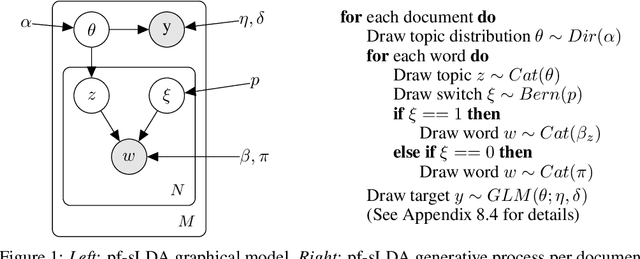
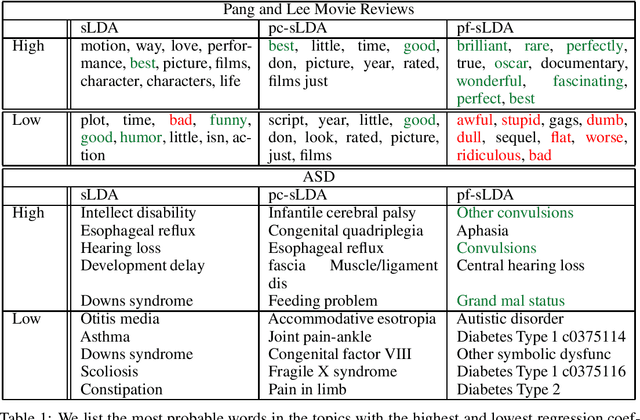

Abstract:Electronic Health Record (EHR) data can be represented as discrete counts over a high dimensional set of possible procedures, diagnoses, and medications. Supervised topic models present an attractive option for incorporating EHR data as features into a prediction problem: given a patient's record, we estimate a set of latent factors that are predictive of the response variable. However, existing methods for supervised topic modeling struggle to balance prediction quality and coherence of the latent factors. We introduce a novel approach, the prediction-focused topic model, that uses the supervisory signal to retain only features that improve, or do not hinder, prediction performance. By removing features with irrelevant signal, the topic model is able to learn task-relevant, interpretable topics. We demonstrate on a EHR dataset and a movie review dataset that compared to existing approaches, prediction-focused topic models are able to learn much more coherent topics while maintaining competitive predictions.
Prediction Focused Topic Models via Vocab Selection
Oct 12, 2019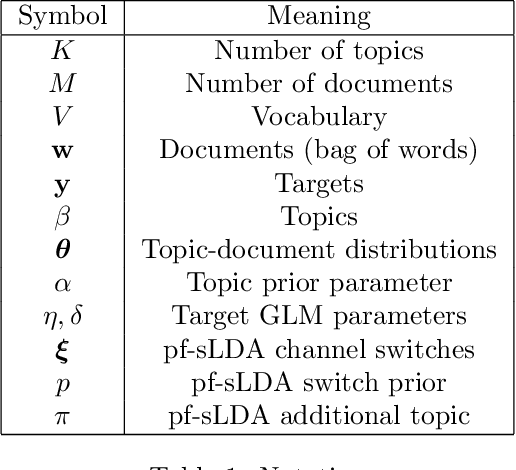
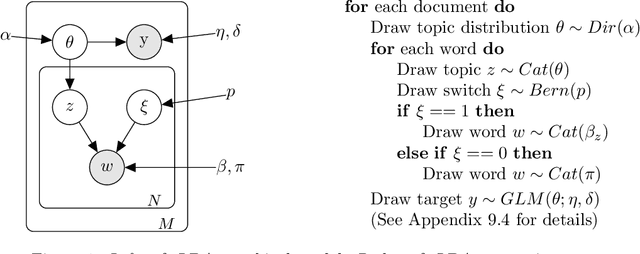
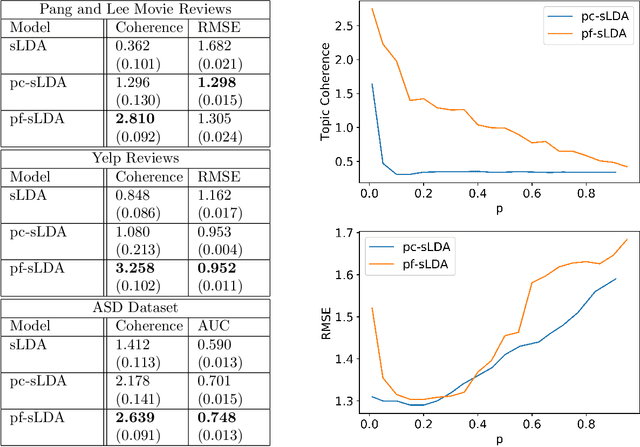
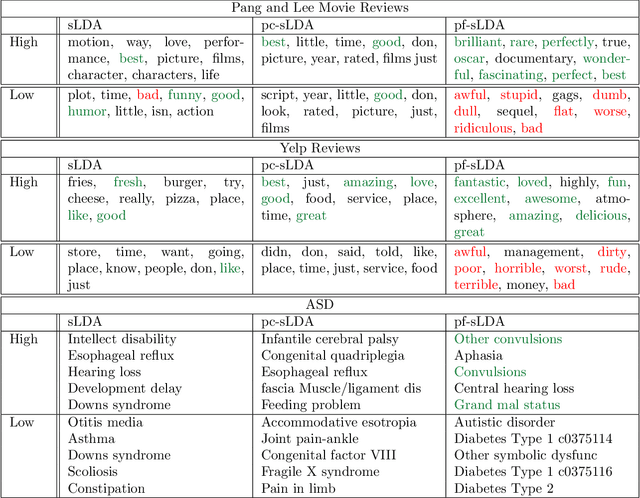
Abstract:Supervised topic models are often sought to balance prediction quality and interpretability. However, when models are (inevitably) misspecified, standard approaches rarely deliver on both. We introduce a novel approach, the prediction-focused topic model, that uses the supervisory signal to retain only vocabulary terms that improve, or do not hinder, prediction performance. By removing terms with irrelevant signal, the topic model is able to learn task-relevant, interpretable topics. We demonstrate on several data sets that compared to existing approaches, prediction-focused topic models are able to learn much more coherent topics while maintaining competitive predictions.
 Add to Chrome
Add to Chrome Add to Firefox
Add to Firefox Add to Edge
Add to Edge